Whether you were an exercise bunny before you got pregnant or you’re allergic to the gym, all pregnant women without complications are encouraged to keep up an active lifestyle throughout their pregnancy. Not only does exercise boost your mood and help you sleep, it can also help prepare your body for pregnancy weight gain and get you in shape for childbirth.
So, what kinds of exercise should pregnant women by aiming to do?
First of all, any exercise in pregnancy is better than no exercise at all. If you weren’t big on working out before you were pregnant, try starting small by taking a walk around your block a few days a week, then build up from there.
In particular, aerobic and strength-conditioning exercises are ideal for pregnant women as they help build up your fitness and muscle strength. The following types of exercise are particularly beneficial for pregnancy:
- Walking
- Jogging
- Swimming
- Cycling on a stationary bike
- Low-impact aerobic exercise classes
- Aquaerobics
- Yoga or pilates (tell your instructor you are pregnant before class)
- Pregnancy exercise classes
Ideally, you should be aiming to get around 150 minutes of moderate to vigorous exercise per week. The ‘talk test’ – whether you can talk while exercising – is a good way to guide the intensity of your workout. If you can’t keep up a conversation, it’s time to take it down a notch.
Cautions
While most forms of exercise are safe, there are some exercises that involve positions or movements that may be uncomfortable or harmful for pregnancy. Consult your midwife about any specific concerns, but general cautions include:
- Avoid raising your body temperature too high, and reduce your level of exercise on hot or humid days
- Don’t exercise to the point of exhaustion
- Stay well-hydrated before, during and after exercise
- Avoid exercises that involve lying on your back after the first trimester
- Avoid lifting heavy weights – instead, opt for low weights with more repetitions
- Skip exercise if you are feeling ill or feverish
- Listen to your body. If you don’t feel like exercising on a particular day, then skip exercise and save your energy reserves
- Don’t increase the intensity of your exercise program while you are pregnant, and always work at less than 75% your maximum heart rate
- If you develop an illness or complication in your pregnancy, talk with your midwife or obstetrician before continuing or restarting your exercise program
You should immediately stop exercising and consult your obstetrician or midwife if you experience:
- Abdominal pain
- Any ‘gush’ of fluid from the vagina
- Calf pain or swelling
- Chest pain
- Decreased foetal movement
- Dizziness, light-headedness, muscular weakness or blurred vision
- Shortness of breath before exertion
- Excessive fatigue
- Headache
- Pelvic pain
- Excessive shortness of breath
- Painful uterine contractions
- Vaginal bleeding
Ultimately, it’s important to listen to your body. Be aware of the danger signs and symptoms, but don’t be afraid to exercise in pregnancy. You, your baby and your pregnancy in general will all benefit from maintaining an active lifestyle.
Your Hatch Private Maternity midwife and obstetrician can provide you with guidance relating to exercise in pregnancy. If you are yet to meet with one of our midwives, you can book a free, no-obligation initial consultation today to see if Hatch may be right for you. Simply call us on (07) 3332 1950 or request an appointment online.
